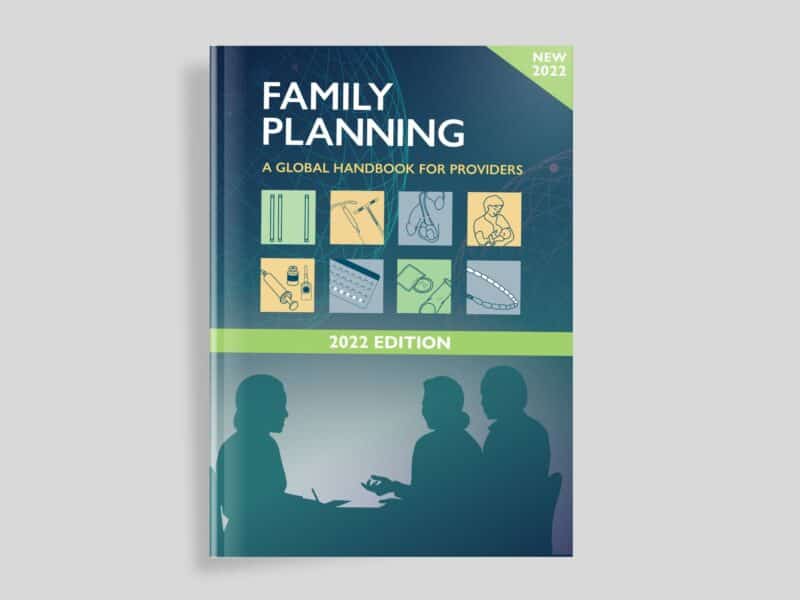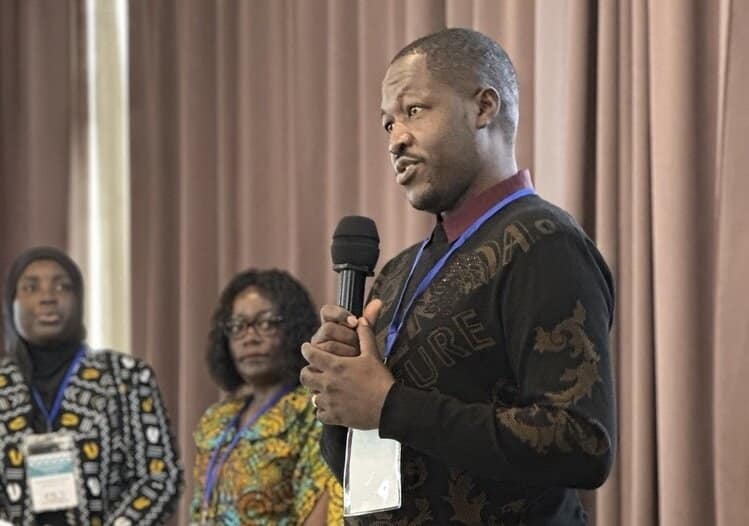Elizabeth Futrell’s professional passions – writing and public health – truly merged in 2015, with the germ of an idea. She had seen the popularity and impact of Humans of New York, a blog featuring portraits and interviews collected on the streets of New York City. She thought to herself, “What if we could do that for family planning?”
Soon, Futrell and her colleagues at the Johns Hopkins Center for Communication Programs’ Knowledge for Health (K4Health) project and Family Planning 2020 founded Family Planning Voices, a global storytelling initiative that has published stories from more than 450 people in more than 50 countries. The idea is similar: Unassuming portraits and a few heartfelt words, in this case shedding light on the unscripted personal stories behind family planning data, while driving momentum and fostering community around the global family planning movement.
“Giving girls, women, and couples the power to decide whether, when, and how often to become pregnant helps them chart the course of their own lives and their children’s,” she says. “Contraception is a simple, low-cost preventative measure that can unlock health, education, economic opportunity, peace, and more. Everyone deserves access.”
For her work with Family Planning Voices, today Futrell, 38, was named one of 120 Under 40: The New Generation of Family Planning Leaders, which recognizes and highlights the achievements of the next generation of family planning leaders worldwide. 120 Under 40 is organized by the Bill & Melinda Gates Institute for Population and Reproductive Health at the Johns Hopkins Bloomberg School of Public Health, with sponsorship from Bayer.
Futrell holds an undergraduate degree in teaching and English and a master of science in public health from the University of North Carolina. So her work with FP Voices truly combines her two careers: English teacher and public health advocate.
“FP Voices gets to the heart of things,” she says. “It isn’t about what people are doing, but why they are doing it. It amplifies voices from all over the world and helps us understand the many, many reasons why people are drawn to this type of work.”
Supported by the United States Agency for International Development (USAID) under K4Health, FP Voices began as a one-year project. “But the demand has been so great,” she says. “Our hopes weren’t even as big as the project turned out to be. It has taken on a life of its own.”
New FP Voices stories are featured every weekday on the social media accounts of K4Health and FP2020 and archives also appear on a customized Tumblr site. Some of the stories are featured in longer form essays. The FP Voices staff has led storytelling workshops in the United States, Indonesia, Uganda, South Africa, the Philippines and Madagascar to help family planning projects, organizations and networks tell their own stories. And FP Voices had one of the most popular booths at the 2016 International Conference on Family Planning in Indonesia. Three videos have recently been completed, allowing viewers to literally hear the voices.
Futrell has personally conducted roughly 150 of the interviews. Each story is powerful in its own way. She says the one commonality she finds among those she has spoken to is the passion they have for what they do.
“When you interview someone who’s so passionate about what they’re doing, it’s always compelling,” she says. “You don’t do this work for money. You’re motivated by something you have experienced or a desire to make things better.”
More than a few have made her cry and many have stuck with her.
When asked which ones, she quickly points to the story of Dr. Fred Yao Gbagbo, director of clinical services with Marie Stopes International in Ghana. Gbagbo just walked into the booth at the international family planning conference and spoke of one of the defining moments if his career, which came when he was in medical school. A young woman came in to have her pregnancy terminated. He and the other providers balked at that for religious reasons. She left, but was back within three hours, semi-conscious and bleeding badly.
“What had happened was when we drove her away, she went to the backstreets and had an unsafe abortion,” he explained to Futrell. “And so it now became an emergency. We had to rush to the [operating] theater to go and save her life. … We did our possible best, but we lost her. Now the question is: Who killed this young woman?”
He made himself a promise that day, one that eventually turned him into a champion for sexual and reproductive health: “Look, killing is not just taking a gun and killing somebody. Refusing somebody access to a legitimate service as a health professional is more murderous than just taking a gun and shooting someone.”





